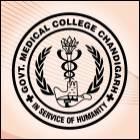- Home
- Courses
- Predictors
- Packages
- About
- Login
- Contact
- Near NRR Hospital, Thammenahalli Village, Bengaluru, Karnataka 560 090
- +91 8904151144
- cgmanagement00@gmail.com
Content Writer: Shubham S Nimje
Published on: Tue Jan 09 2024Updated on: Tue Jan 09 2024
Introduction: Bachelor of Veterinary Science (BVSc) stands as a pivotal discipline in healthcare, focusing on the care, treatment, and welfare of animals. This comprehensive guide aims to illuminate the essence of BVSc, encompassing its educational insights, admission procedures, top colleges, career prospects, and more.
BVSc stands for Bachelor of Veterinary Science, an undergraduate program that equips students with knowledge in animal anatomy, physiology, diseases, and healthcare.
BVSc programs combine theoretical knowledge with practical experience, offering hands-on training in animal handling, diagnostics, surgery, and preventive healthcare measures.
Individuals passionate about animal welfare, veterinary medicine, biology, and those seeking a career in the healthcare sector, especially related to animals, are well-suited for BVSc.
Aspiring students can pursue BVSc directly after completing their 10+2 education, embarking on a transformative journey into the field of veterinary science.
Traditional BVSc programs involve full-time study, including theoretical classes, laboratory work, clinical rotations, and practical training in veterinary hospitals or farms.
Some institutions offer distance learning or online BVSc courses, providing flexibility for students, especially working professionals, to pursue veterinary education remotely.
Candidates seeking admission to BVSc programs typically require a 10+2 qualification with Physics, Chemistry, Biology, and English as compulsory subjects. Specific eligibility criteria may vary across institutions.
Entrance exams like NEET (National Eligibility cum Entrance Test), AIPVT (All India Pre-Veterinary Test), and state-level veterinary entrance exams serve as entry points for BVSc programs in India.
BVSc programs offer specializations such as Veterinary Surgery, Medicine, Pathology, Animal Nutrition, Pharmacology, Public Health, and Livestock Production Management.
Renowned institutions offering BVSc programs include Indian Veterinary Research Institute (IVRI), Tamil Nadu Veterinary and Animal Sciences University (TANUVAS), Maharashtra Animal and Fishery Sciences University (MAFSU), among others.
Universities abroad offering BVSc programs include the University of Melbourne (Australia), University of Guelph (Canada), Royal Veterinary College, University of London (UK), Cornell University (USA), among others.
After BVSc, graduates can pursue Master of Veterinary Science (MVSc), specialized diplomas, certifications, or higher research degrees in specific areas of veterinary science.
BVSc graduates find employment opportunities in veterinary clinics, research institutes, pharmaceutical companies, wildlife organizations, government veterinary departments, and animal husbandry departments.
BVSc programs delve into ethical considerations, addressing animal rights, welfare, and the ethical responsibilities of veterinarians towards their patients.
Students learn about legal frameworks, regulations, and veterinary ethics governing animal treatment, healthcare practices, and professional conduct in the field.
BVSc curriculum includes training in diagnostic imaging techniques like radiography, ultrasonography, CT scans, and MRI for accurate diagnosis and treatment planning.
Students gain proficiency in laboratory diagnostic procedures such as hematology, microbiology, serology, and biochemistry for analyzing samples and diagnosing animal diseases.
BVSc programs cover healthcare and husbandry practices for exotic pets, birds, reptiles, and small mammals, addressing specific health concerns of non-traditional pets.
Veterinarians specializing in wildlife conservation contribute to the health and preservation of endangered species, wildlife rehabilitation, and disease management in wildlife populations.
BVSc professionals engage in a One Health approach, collaborating with professionals from diverse fields like human medicine, environmental science, and public health to address interconnected health issues.
Veterinarians play a crucial role in disease surveillance, monitoring zoonotic diseases, preventing outbreaks, and maintaining public health by controlling the spread of diseases from animals to humans.
BVSc includes education in animal nutrition, emphasizing balanced diets, nutritional requirements, and formulation of diet plans to ensure optimal health and growth of animals.
Veterinarians specializing in livestock management focus on optimizing productivity, breeding programs, disease prevention, and improving animal welfare in agricultural settings.
BVSc programs explore emerging fields like regenerative medicine and stem cell therapy for treating musculoskeletal injuries, degenerative conditions, and wound healing in animals.
Veterinarians contribute to biotechnological advancements, including reproductive technologies, gene editing, and vaccine development for animal health improvement.
BVSc graduates engage in CVE programs, attending conferences, workshops, and specialized courses to stay updated with advancements and best practices in veterinary science.
Some graduates opt for residency programs or fellowships in specialized fields like surgery, internal medicine, pathology, or radiology for advanced training and expertise.
Veterinarians participate in international humanitarian initiatives, providing veterinary aid, disaster response, and healthcare services to animals in underserved regions.
BVSc graduates work with NGOs focused on animal welfare, sustainable agriculture, and community-based veterinary healthcare in developing countries.
Entry-level salaries for BVSc graduates vary based on experience, location, specialization, and type of employment, with potential growth in earnings over time and with added expertise.
A: BVSc graduates can work as veterinarians, research scientists, animal health inspectors, livestock farm managers, wildlife conservationists, or pursue higher studies in specialized areas.
A: BVSc degrees from recognized institutions hold credibility globally, allowing graduates to practice or pursue further studies in countries that recognize veterinary science.
A: Yes, BVSc graduates can work in wildlife conservation, rehabilitation centers, national parks, and zoological gardens, contributing to wildlife healthcare and conservation efforts.





Copyright © 2023 Career Guidance Management
Design and Developed by CGM